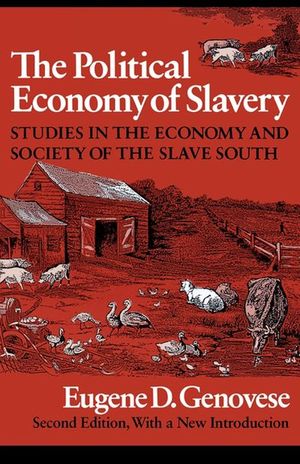The Political Economy of Slavery
Published by Wesleyan University Press
This classic study of antebellum Southern society demonstrates how slavery was the bedrock of the region’s social order and cultural identity.
In The Political Economy of Slavery, Eugene Genovese argues that slavery gave the South a distinct class structure, political community, economy, ideology, and a set of psychological patterns. As a result, the South grew away from the rest of the nation and became increasingly unstable during the nineteenth century. The difficulties it faced—economic, political, moral, and ideological—constituted a fundamental antagonism between modern and premodern worlds.
Southern slavery was the foundation on which rose a powerful social class which, in turn, dominated Southern society. While they constituted only a tiny portion of the white population, they were powerful enough to largely succeed at building a new—or rather rebuilding an old—civilization.
In The Political Economy of Slavery, Eugene Genovese argues that slavery gave the South a distinct class structure, political community, economy, ideology, and a set of psychological patterns. As a result, the South grew away from the rest of the nation and became increasingly unstable during the nineteenth century. The difficulties it faced—economic, political, moral, and ideological—constituted a fundamental antagonism between modern and premodern worlds.
Southern slavery was the foundation on which rose a powerful social class which, in turn, dominated Southern society. While they constituted only a tiny portion of the white population, they were powerful enough to largely succeed at building a new—or rather rebuilding an old—civilization.
BUY NOW FROM
COMMUNITY REVIEWS

